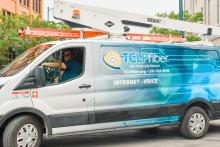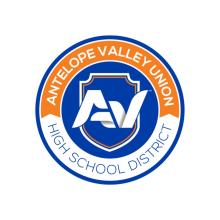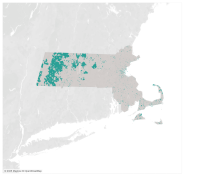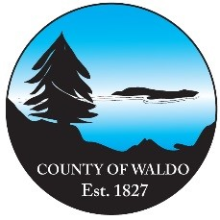
Five small towns in rural Maine are connecting with one another in a steady grassroots effort to expand broadband access in the Midcoast. After conducting a survey which affirmed the towns’ acute need for better connectivity, a local coalition is navigating state funding and weighing network options.
In Waldo County, a collection of local officials and community volunteers have formed the Southwestern Waldo County Broadband Coalition (SWCBC) to organize efforts to bring broadband to five towns in rural Maine, clustered about 30 miles east of Augusta. Freedom, Liberty, Montville, Palermo and Searsmont combined have only 3,300 houses along 340 miles of road. The need for better Internet access became particularly visible during the pandemic, as local officials tried to convene online for Selectmen’s meetings. Two selectpersons from neighboring towns connected over this shared need for access, and the coalition grew from there.
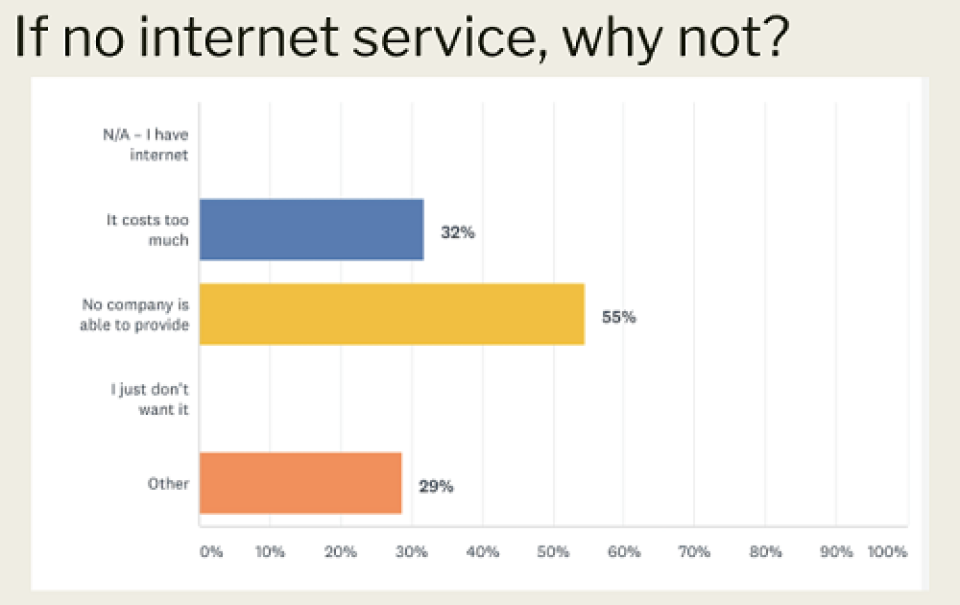
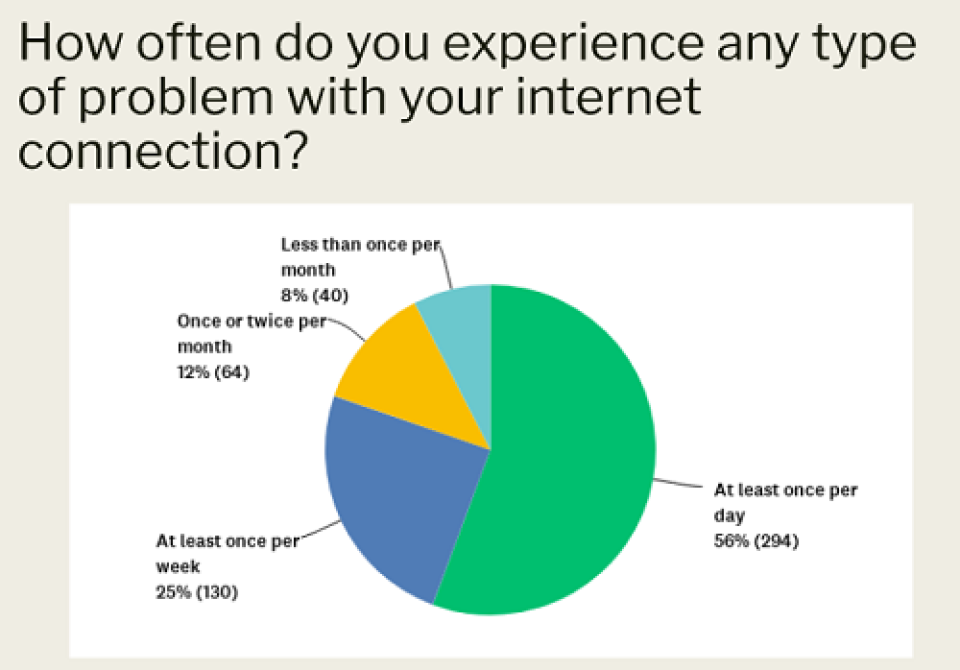
Phase I of the project included distributing a survey to assess connectivity needs across the towns, as well as taking inventory of existing infrastructure. This phase was funded by ConnectMaine, with support from the Kennebec Valley Council of Governments and the Island Institute. The initial connectivity need survey found that out of respondents who did not have Internet access, 55 percent had no provider offering wireline access, and for 32 percent access was too expensive. 76 percent of respondents with Internet access reported a deteriorated connection with more than one user online, and 56 percent experienced an Internet connection problem at least once a day. The data also showed that “96 percent of the 70 miles of road in Searsmont [the largest of the five towns], are either underserved or not served at all by current Internet service providers.”
The coalition has identified four possible models to solve the connectivity gap and improve regional access:
- A regional nonprofit utility: through interlocal agreements, a nonprofit utility is created and the construction and operation of a fiber network are subcontracted out. The collective towns own the network.
- A public-private partnership: The regional nonprofit utility partners with a private ISP or ISPs. The collective towns are a partial owner of the network.
- Private ownership: Existing ISP services are expanded to include all town residents.
- Private ownership of fixed wireless: The coalition has identified a local ISP to build out a fixed wireless access network if this option is selected.
Moving Ahead
At this phase there’s no word on which of the above models would see the contribution of public dollars, or in what way. ConnectME has not yet investigated the private, fixed wireless option for eligibility. However, SWCBC recently decided to move forward with a feasibility study that will include consideration of all options and cost each town $9,000 in Rescue Plan Act dollars. In a December 2021 newsletter, the coalition reported that a Phase II Planning Grant has been submitted in pursuit of state funds:
“This grant will be used to incorporate the results from the feasibility study to produce formal cost estimates, business models and a network design for a build-out that provides high speed Internet access to all areas in the 5 towns of the SWCBC” (SWCBC).
At least three of the four above options have local precedent. SWCBC cites a public-private partnership between three small towns in Washington County, Maine, and Charter Spectrum, in which Spectrum invested $3 million to build out broadband to residents. It likewise cites the Downeast Broadband Utility, which is a successful open access network owned by three small towns in Maine. Finally, it references local ISP Red Zone's completion of a pilot wireless buildout in Midcoast Maine.
The coalition said in its meeting that it anticipates the private ownership option will be less popular with residents, as they are dissatisfied with the local ISPs. As we’ve seen many times, simply giving money to out-of-state monopoly providers with no strings attached might seem like the simplest route, but it often doesn’t solve the long-term, real connectivity issues for the community.
The coalition will seek the approval of each town’s residents before moving forward with buildout.
Maine has $249 million in broadband funds currently available, and recently created a new agency – Maine Connectivity Authority – to replace ConnectMaine and facilitate the distribution of these federal broadband funds and the expansion of Internet access in rural areas. SWCBC is currently waiting on announcements from the Maine Connectivity Authority, as its proposals and timeline hinge in large part on state-level funding processes.


